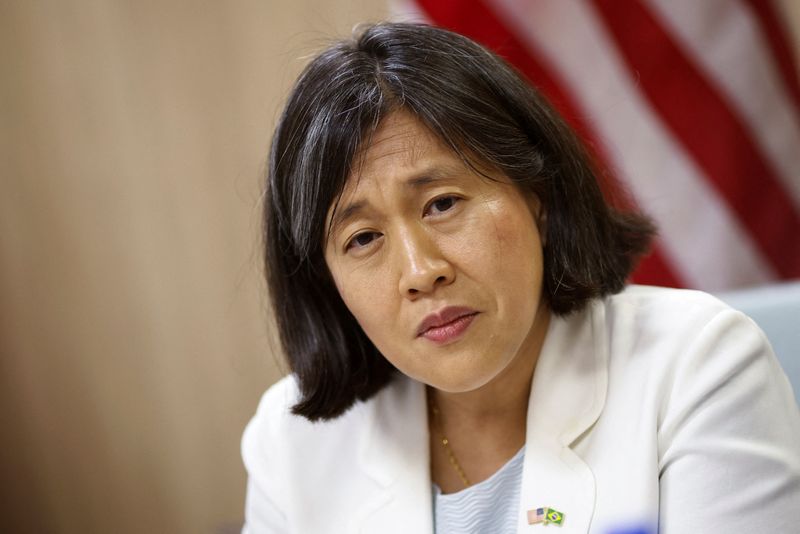US Trade Rep Tai objects to Chinese policies in commerce minister meeting
2023.05.26 15:52

© Reuters. FILE PHOTO: U.S. Trade Representative Katherine Tai speaks in Brasilia, Brazil March 8, 2023. REUTERS/Adriano Machado
2/2
By David Lawder
DETROIT (Reuters) -U.S. Trade Representative Katherine Tai raised complaints about China’s state-led economic policies during a meeting with Chinese Commerce Minister Wang Wentao on Friday, but emphasized the need for the two countries to continue engagement, her office said.
“Ambassador Tai highlighted the need to address the critical imbalances caused by China’s state-led, non-market approach to the economy and trade policy,” USTR said in a statement released after the meeting on the sidelines of an Asia Pacific Economic Cooperation (APEC) conference in Detroit.
“She also raised concerns about PRC (People’s Republic of China) actions taken against U.S. companies operating there,”
Wang’s meetings with Tai in Detroit and with U.S. Commerce Secretary Gina Raimondo in Washington on Thursday marked the first cabinet-level exchange in months between U.S. and Chinese officials, following a series of setbacks that raised tensions between the world’s two largest economies.
Tai stressed the importance of maintaining open lines of communication between Washington and Beijing as they spoke on the sidelines of an Asia-Pacific Economic Cooperation meeting in Detroit, the statement said.
China’s embassy in Washington could not immediately reached for a comment on the meeting. China’s Commerce Ministry late on Thursday said he raised concerns with Raimondo about U.S. trade, investment and export policies.
U.S. President Joe Biden and Chinese President Xi Jinping pledged more frequent communications at a G20 summit in Indonesia last November to avoid U.S.-China tensions from turning into a new Cold War.
But those plans suffered several setbacks, starting with the downing of a Chinese spy balloon in U.S. coastal waters.
These irritants continued through last Sunday, when G7 leaders pledged to resist China’s “economic coercion” and Beijing responded by declaring U.S. memory chip maker Micron Technology (NASDAQ:) a national security risk, banning its sales to key domestic industries.








